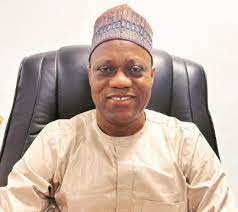….Says Surveys Have Helped Nigeria Save Over $8.9Bn
The Statistician-General of the Federation and Chief Executive Officer of the National Bureau of Statistics (NBS), Prince Adeyemi Adeniran, has charged policy makers, planners, researchers, the organized private sector (OPS) and other stakeholders in the Nigerian statistical system to use the findings in the General Household Survey -Panel, Wave 5 report just published by the Bureau to guide their policy formulation and implementation for sustainable development.
Adeniran, who gave the charge in his welcome address delivered during the Official Report Launch and Dissemination of the survey on Thursday in Abuja, highlighted the benefits of the multi-topic data collection exercise for the public, especially those in charge of planning, policy formulation and implementation ministries, departments and agencies (MDAs) both locally and internationally, in terms of the data contained in the publication.
According to him, the GHS Panel survey is a very special and peculiar survey at NBS for a multitude of reasons, firstly being a multi-topic data collection exercise that serves as an essential tool for capturing the dynamics of Nigerian households, providing invaluable insights into their economic activities, well-being, and resilience.
Secondly, the Statistician-General explained that it is a longitudinal survey, that tracked and interviewed the same respondents over time and in this case, being the 5th Wave of the survey, approximately covering the same 5,000 households that had been followed and interviewed since the maiden exercise was conducted in 2010/2011, adding that the Wave 5 is a significant accomplishment for NBS and the Nigerian statistical system being the first of such survey to be carried out in Africa.
Adeniran noted that thirdly and most importantly, the impact of the survey in terms of its contribution to knowledge and the application of its findings to the design of policies and programmes remained very significant and the influence of the results cannot be understated.
For instance, he pointed that available records indicated that, over the last five years, the survey findings had been used to design several projects and intervention programmes worth approximately $8.9 billion across many sectors, which include Agriculture and Food, Education, Water, Social Protection and Jobs, Governance, and several others.
The NBS’ boss maintained that as the Coordinator of the national statistical system, the GHS Panel served as a platform for the NBS to achieve several of its mandates in swoop such as allowing it to meet the mandate of providing data to its users, but also serving to enhance its ability to innovate and to test and explore modern methods and approaches to survey implementation.
Adeniran further clarified that the methodology adopted for the GHS Panel had continued to evolve to keep pace with the complex and changing demands of our society. For this round, he said the Bureau introduced enhanced modules that captured key aspects such as migration patterns, remittances, and the impacts of climate-related shocks.
In addition, he disclosed that two additional modules on children were also incorporated, with one of the modules capturing early childhood development, and identifying the main caregivers of the children in the household while a detailed module on shocks collected additional information about climate shocks in the country.
The Statistician-General reported that however, the survey’s findings showed that households reported economic shock as the most prevalent kind of shock experienced, with 71.0% of households reporting the price increase on major food items.
He expatiated that by tracking the same households across waves, the survey provided a nuanced understanding of how Nigerian households have been navigating challenges and seizing opportunities presented by the different types of shocks they encountered over the years.
On the plans of the statistics agency to consistently provide credible data for planning and development, Adeniran assured that Bureau remained committed to advancing our data collection and analysis mechanisms, adding that going forward, the management plans to integrate even more digital tools to streamline data collection and analysis and broaden the statistics agency’s reach to ensure that topics that are critical to users are taken on board.
In addition, he promised that the Bureau would ensure that this goal is achieved as much as possible by combining the data with other data sources in order to provide more disaggregated information to suit the needs of users across the board.
Speaking on the invaluable benefits of the (GHS-Panel) Wave 5 report to planning and development, the Statistician-General encouraged “all policymakers, researchers, and stakeholders here today to engage with the data and use these insights to drive evidence-based decisions and policymaking across your work. Whether for poverty reduction initiatives, social welfare programs, or economic development strategies, the findings of this report offer a powerful foundation for addressing the specific needs of all Nigerians.”
He expressed the NBS’ appreciation to the World Bank and the Bill & Melinda Gates Foundation in particular, for their steadfast support over the years, noting that the partnerships have enhanced the Bureau’s technical expertise and allowed it to participate and engage with other National Statistics Offices (NSOs) at various international fora, thereby enabling it to meet international standards of data quality, transparency, and integrity.






